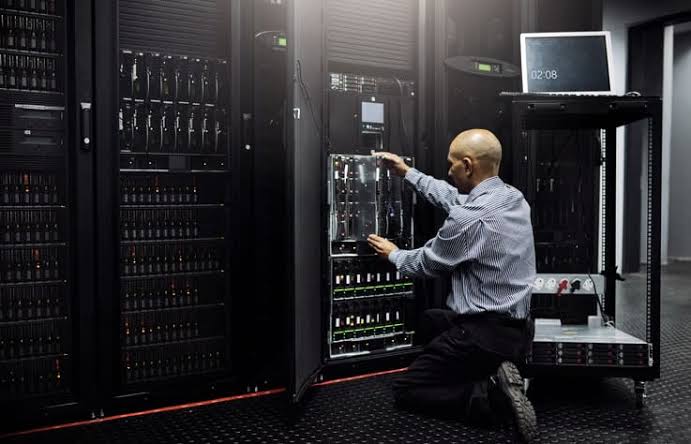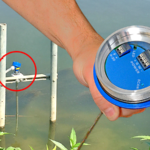As businesses increasingly rely on dedicated server hosting for their critical online operations, ensuring the security of their hosting environment becomes paramount. Dedicated servers offer unparalleled control and performance, but without proper security measures, they can be vulnerable to cyber threats. In this article, we will explore essential steps and best practices to secure your dedicated server hosting environment. By implementing these measures, you can protect your data, maintain business continuity, and safeguard your online reputation.
Perform Regular Security Audits
Start by conducting regular security audits to identify potential vulnerabilities in your dedicated server environment. This involves assessing server configurations, access controls, network settings, and software installations. Identify any outdated software or unpatched vulnerabilities and promptly apply necessary updates to ensure your server is protected against known security flaws.
Strong Passwords and Two-Factor Authentication
Ensure that strong passwords are used for all user accounts on your dedicated server. Encourage complex passwords that include a combination of uppercase and lowercase letters, numbers, and special characters. Additionally, enable two-factor authentication (2FA) for added security. With 2FA, even if an attacker obtains a user’s password, they would still require an additional authentication factor, such as a code generated on a mobile device, to gain access.
Firewall Configuration and Intrusion Detection Systems
Configure a robust firewall to filter network traffic and prevent unauthorized access to your dedicated server. Utilize both hardware and software firewalls to create multiple layers of defense. Additionally, consider implementing intrusion detection systems (IDS) to detect and alert you of any suspicious activity or potential attacks on your server.
Regular Backups and Disaster Recovery Plans
Frequent backups are crucial in case of data loss or server compromise. Implement a comprehensive backup strategy that includes regular automated backups of your server’s data and configurations. Store backups in off-site or cloud-based locations for additional security. Additionally, develop a disaster recovery plan that outlines procedures for restoring data and getting your server back online in the event of a breach or catastrophic failure.
Secure Remote Access
If remote access is necessary, take steps to secure it. Utilize secure protocols such as Secure Shell (SSH) or Virtual Private Network (VPN) connections for remote administration. Restrict remote access permissions to authorized users only and disable default or unnecessary remote access services to minimize the attack surface.
Regular Software Updates and Patch Management
Keep your server’s operating system, control panel software, and applications up to date with the latest security patches. Vulnerabilities in software can be exploited by attackers to gain unauthorized access to your server. Regularly check for updates and apply them promptly to ensure your server is protected against known security weaknesses.
Implement Intrusion Prevention Systems
Consider implementing intrusion prevention systems (IPS) that actively monitor and block malicious network traffic. IPS can detect and prevent various types of attacks, such as distributed denial-of-service (DDOS) attacks, SQL injections, and cross-site scripting (XSS) attacks. IPS adds an additional layer of protection to your dedicated server hosting environment.
Regular Security Training and Education
Invest in security training and education for your staff. Keep them informed about the latest security threats and best practices. Train employees to recognize and report suspicious activities, phishing attempts, and social engineering attacks. With well-informed and security-conscious employees, you can strengthen your overall security posture.
Regular Log Monitoring and Analysis
Enable logging on your dedicated server and regularly monitor the logs for any signs of unauthorized access or suspicious activity. Log monitoring helps detect and respond to security incidents promptly. Consider using log analysis tools or security information and event management (SIEM) solutions to automate the monitoring process and generate alerts for potential security breaches.
Engage with a Reliable Hosting Provider
Selecting a trusted and reliable dedicated server hosting provider is critical for the security of your hosting environment. Look for providers that prioritize security and offer robust security features, such as firewalls, intrusion detection systems, and regular security updates. Additionally, ensure they have a responsive customer support team that can assist you in implementing security measures and addressing any security concerns promptly.
Conclusion
Securing your dedicated server hosting environment is essential to protect your data, maintain business continuity, and safeguard your online reputation. By following the best practices outlined in this article, such as performing regular security audits, implementing strong passwords and two-factor authentication, configuring firewalls and intrusion detection systems, and engaging with a reliable hosting provider, you can significantly enhance the security of your dedicated server hosting environment. Prioritizing security not only protects your business but also instills confidence in your customers, leading to long-term success in the digital realm.








